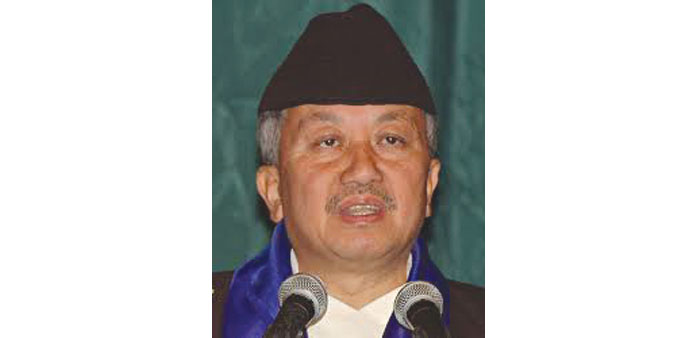Nepal’s constitution drafting body, the constituent assembly, is preparing to adopt a fast-track model to promulgate a new constitution for the country within the next 11 months.
A fast-track model means the number of committees in the constituent assembly will be decreased and tasks of the previous assembly will be accepted by the new one, reported Xinhua.
Many procedural hassles will also be removed from the assembly rules of procedure this time.
Parties have pledged to deliver a new constitution within a year and one month has already elapsed since the first meeting of the assembly on January 22.
Subhash Nembang, chairman of the constituent assembly, said the countdown for the deadline for drafting a new constitution has already begun and urged the political parties to focus on constitution-related tasks.
A cross-party committee of the assembly entrusted to prepare new rules has proposed formation of only five committees for the purpose of writing a new constitution.
“A cross-party committee inside the constituent assembly will prepare a report about the agreed and contentious issues related to a new constitution and present it to the constituent assembly,” said Laxman Lal Karna, a lawmaker involved in preparing the rules of procedure.
The rules of procedure aim to prepare a first draft of the new constitution within the next six months and finalise it within the next 11 months.
All the major political parties had promised in their manifestos that they would deliver a democratic, inclusive republic and federal constitution for Nepal within one year.
The Nepali Congress emerged as the largest party after the November 19 constituent assembly elections while the Communist Party of Nepal-Unified Marxist Leninist (CPN-UML) and the United Communist Party of Nepal-Maoist (UCPN-Ma) came second and third respectively.
The bone of contention during the former assembly was federalism and the form of government that has to be adopted.
This time too, these two issues will be dominating the house.
“If we could not reach an understanding or consensus over the issue of federalism and forms of government we will sort them out from inside the assembly,” Koirala had said.
In the former assembly too, the issue of voting to determine contentious issues was tabled but political parties were divided and the assembly was dissolved after the expiry of its term and tenure.
According to CPN-UML chairman Jhalanath Khanal, the commitment to draft a democratic constitution within a year was there and the parties are not shirking their responsibility.
Another CPN-UML leader, K P Oli, while casting doubts over the timetable for promulgating the new constitution, had said that the timeline would be flexible for drafting a new constitution.
“The term and tenure of the assembly is set for four years so that if we cannot complete the responsibility by one year, it could be pushed for further sometime,” he had said.

